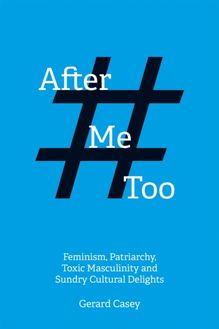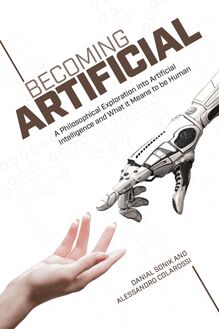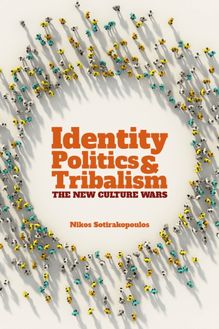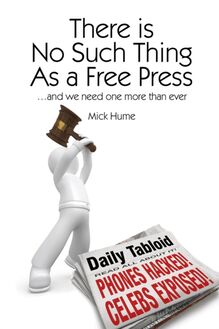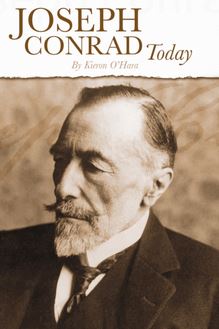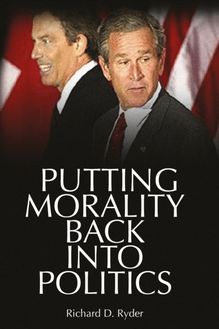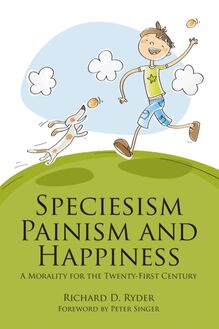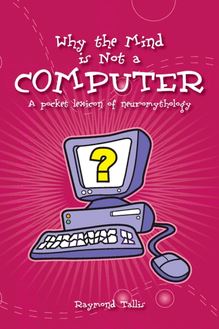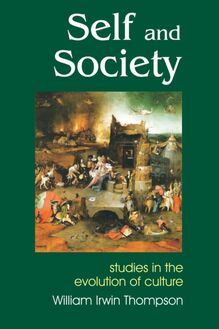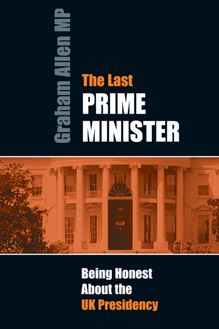-
 Univers
Univers
-
 Ebooks
Ebooks
-
 Livres audio
Livres audio
-
 Presse
Presse
-
 Podcasts
Podcasts
-
 BD
BD
-
 Documents
Documents
-
- Cours
- Révisions
- Ressources pédagogiques
- Sciences de l’éducation
- Manuels scolaires
- Langues
- Travaux de classe
- Annales de BEP
- Etudes supérieures
- Maternelle et primaire
- Fiches de lecture
- Orientation scolaire
- Méthodologie
- Corrigés de devoir
- Annales d’examens et concours
- Annales du bac
- Annales du brevet
- Rapports de stage
La lecture à portée de main
Vous pourrez modifier la taille du texte de cet ouvrage
Découvre YouScribe en t'inscrivant gratuitement
Je m'inscrisDécouvre YouScribe en t'inscrivant gratuitement
Je m'inscrisEn savoir plus
Vous pourrez modifier la taille du texte de cet ouvrage
En savoir plus

Description
Sujets
Informations
| Publié par | Andrews UK |
| Date de parution | 18 novembre 2019 |
| Nombre de lectures | 0 |
| EAN13 | 9781788360241 |
| Langue | English |
Informations légales : prix de location à la page 0,0550€. Cette information est donnée uniquement à titre indicatif conformément à la législation en vigueur.
Extrait
ZAP
Free Speech and Tolerance in the Light of the Zero Aggression Principle
Gerard Casey
SOCIETAS
essays in political & cultural criticism
imprint-academic.com
First published in 2019 by
Imprint Academic
PO Box 200, Exeter EX5 5YX
www.imprintacademic.com
Digital edition converted and distributed by
Andrews UK Limited
www.andrewsuk.com
Copyright © 2019 Gerard Casey
The right of Gerard Casey to be identified as the author of this work has been asserted in accordance with the Copyright, Designs and Patents Act 1988.
All rights reserved. No part of this publication may be reproduced, stored in a retrieval system, or transmitted, in any form or by any means without the prior written permission of the publisher, nor be otherwise circulated in any form of binding or cover other than that in which it is published and without a similar condition being imposed on the subsequent purchaser. Any person who does so may be liable to criminal prosecution and civil claims for damages.
The views and opinions expressed herein belong to the author and do not necessarily reflect those of Imprint Academic or Andrews UK Limited.
To my son
Gerard Patrick Casey
1985-2017
Everyone has the right to freedom of opinion and expression; this right includes freedom to hold opinions without interference and to seek, receive and impart information and ideas through any media and regardless of frontiers
—Universal Declaration of Human Rights
Tolerance implies no lack of commitment to one’s own beliefs. Rather it condemns the oppression or persecution of others
—John F. Kennedy
Proclaim the truth and do not be silent through fear.
—St. Catherine of Siena
Foreword and Acknowledgements
Not another book on free speech! Not another book on tolerance! Aren’t there plenty of good books on these topics already? Yes indeed, among which I highly recommend Frank Furedi’s On Tolerance , Nadine Strossen’s Hate and, on a topic related to the final chapters of this book, Ben Cobley’s The Tribe . That being so, what, if anything, is the added value of ZAP ?
I argue that free speech and tolerance are closely related topics and that a defensible treatment of both requires a principled rather than a pragmatic approach. Such an approach, I believe, can be provided by the Zero Aggression Principle (ZAP). This principle permits a defence of free speech to be coherently articulated while simultaneously avoiding the free-for all that would result from adopting a fundamentalist approach to free speech, as well as firmly rejecting the current ad hoc measures that are operative in our societies. The ZAP also provides the basis for a coherent and defensible account of tolerance.
I also argue that the currently fashionable dogmas of diversity, inclusion and equality are pre-eminent practical manifestations of intolerance and are therefore properly to be exposed and criticised as such.
Although the elements of a critical account such as this have been around for some time, I don’t believe that anyone has grounded an approach to free speech and tolerance on the same basic principle while also characterising and criticising the fashionable doctrines of diversity, inclusion and equality as instances of practical intolerance. If they have, I’m not aware of it but I apologise if I’ve inadvertently repeated what has been done elsewhere. I console myself with the thought that if it’s worth doing, it’s worth doing twice!
I’m not sure if many people will like this book. I’m not sure if I like it myself but, as Ralph Vaughan Williams is reputed to have said about one of his symphonies, ‘I don’t know whether I like it, but it’s what I meant.’ I suspect that my libertarian friends (some of them, at least) will baulk at my imperfectly concealed socially conservative views while my conservative friends (all of them) will object to my overtly libertarian approach. Free speech fundamentalists will be appalled at my suggestion that there are any limits to free speech and my Christian co-believers may wonder (if they haven’t already) if I’ve abandoned my faith and become a sceptic, a relativist and a libertine. To libertarians and conservatives I would reply that libertarianism and conservatism are compatible, to free speech fundamentalists I would point out that liberty is not licence, and to my fellow Christians I can only say that I believe more firmly than ever I did in the way, the life and the truth.
I have tried to keep this book focussed on practical issues and not allow it to float away on a sea of philosophical abstractions. As will be evident from even a cursory reading of this book, I have ransacked newspapers and other print and online sources for material germane to my project. A perennial danger in trying to be topical is that there’s always another story, always another incident that just has to be included so that no matter where one stops the discussion one is sure to be overtaken by events. The manuscript as published was completed in May 2019. In striving to keep the discussion grounded (popular) while providing some measure of analysis (criticism), my plan was to provide two stools for the reader to sit on but I cannot shake off a nagging suspicion that the reader may end up trying to sit on the empty space between them.
The writing project, of which this book is a part, was originally conceived as a joint venture with my friend and colleague Tim Crowley but my would-be partner in crime was unable to continue. We have, however, been in regular correspondence and some of his ideas and, I suspect, even some of his ipsissima verba may have found their way into the finished work. Thanks for the inspiration and support, Tim, and apologies for any inadvertent plagiarism.
The References section contains a list of books, articles and online material that I consulted in the writing of this book. I don’t agree with everything in all of these writings—that would be little short of miraculous!—but I have found what their authors had to say informative, consciousness-raising, enlightening, sometimes infuriating but always stimulating.
I believe that all the statements made in this book about named or identifiable individuals are substantially true. In almost every such case, these statements are a re-publication, either verbatim or in paraphrase, of reports already available in the public domain. In any event, statements made in this book are my honest opinions and are made in the public interest.
I thank those who unselfishly gave of their time to read over my manuscript, in particular Patricia Casey and Mary Newman. Apart from readers’ substantive suggestions for improvement—the one about using the manuscript to fuel the incinerator was perhaps a little harsh!—they have pointed out typographical errors, stylistic infelicities and instances of more than usual incomprehensibility. If any of these remain, it’s entirely their fault!
And a special word of thanks is due to Jason Walsh for help well above and beyond the call of either duty or friendship.
How Free Should Free Speech Be?
I believe there are more instances of the abridgment of the freedom of the people by gradual and silent encroachments of those in power than by violent and sudden usurpations.
—James Madison
Don’t teach tricks to your girlfriend’s dog or, at least, don’t teach him certain kinds of tricks. A Scottish YouTube comedian, Mark Meechan (aka Count Dankula) shot his girlfriend’s dog raising his (the dog’s) paw while Meechan made pro-Nazi comments. The shooting was done with a camera, I hasten to add, not with a gun! The video, pretty obviously a joke even if the joke was in bad taste, was posted online and was visited over three million times. Not everyone was amused, however. Meechan was taken to court and convicted in 2018 under the Communications Act of grossly offensive behaviour by inciting racial hatred! There had been no complaints from the public so it seems that the only ones not to get the joke were the police officers and the court officials.
Meechan explained during his trial that he wasn’t a Nazi but did he really have to? Would any self-respecting card-carrying Nazi teach a dog to give the Nazi salute? Meechan claimed that he posted the video to annoy his girlfriend. Well, that’s very bad boyfriend behaviour indeed—tut, tut, Mr Meechan—but it hardly makes his action anti-Semitic and racist, which is what the court sheriff declared it to be. The only ray of light in this whole affair was that at least the RSPCA didn’t prosecute Meechan for animal abuse but maybe they’re just biding their time!
A Little Light Libertarianism
Should you be able to say anything you like, to anyone, at any time, anywhere, in public or in private, in person or electronically, even if you have to get your girlfriend’s dog to do it for you? How would you answer this question? With a ‘Yes’, with a ‘No’, or with an ‘It depends’? Think about your answer for a minute or two before reading on. No, seriously, really do think about it for a minute or two.
In the contemporary world, the problems associated with adjudicating free speech issues can seem intractable, a matter of clashing and mutually inconsistent rights. But almost all the problems associated with free speech and the restrictions to which it may be subjected (if any) stem from our not having a principled basis on which to make coherent and consistent decisions. Some principle or other has to be found to determine what we may say and where and how we may say it if, on the one hand, our speech is not to be subject to the capricious whims of those in authority or the soft tyranny of the Twitterati or if, on the other hand, we are not to fall unde
-
 Univers
Univers
-
 Ebooks
Ebooks
-
 Livres audio
Livres audio
-
 Presse
Presse
-
 Podcasts
Podcasts
-
 BD
BD
-
 Documents
Documents
-
Jeunesse
-
Littérature
-
Ressources professionnelles
-
Santé et bien-être
-
Savoirs
-
Education
-
Loisirs et hobbies
-
Art, musique et cinéma
-
Actualité et débat de société
-
Jeunesse
-
Littérature
-
Ressources professionnelles
-
Santé et bien-être
-
Savoirs
-
Education
-
Loisirs et hobbies
-
Art, musique et cinéma
-
Actualité et débat de société
-
Actualités
-
Lifestyle
-
Presse jeunesse
-
Presse professionnelle
-
Pratique
-
Presse sportive
-
Presse internationale
-
Culture & Médias
-
Action et Aventures
-
Science-fiction et Fantasy
-
Société
-
Jeunesse
-
Littérature
-
Ressources professionnelles
-
Santé et bien-être
-
Savoirs
-
Education
-
Loisirs et hobbies
-
Art, musique et cinéma
-
Actualité et débat de société
- Cours
- Révisions
- Ressources pédagogiques
- Sciences de l’éducation
- Manuels scolaires
- Langues
- Travaux de classe
- Annales de BEP
- Etudes supérieures
- Maternelle et primaire
- Fiches de lecture
- Orientation scolaire
- Méthodologie
- Corrigés de devoir
- Annales d’examens et concours
- Annales du bac
- Annales du brevet
- Rapports de stage
